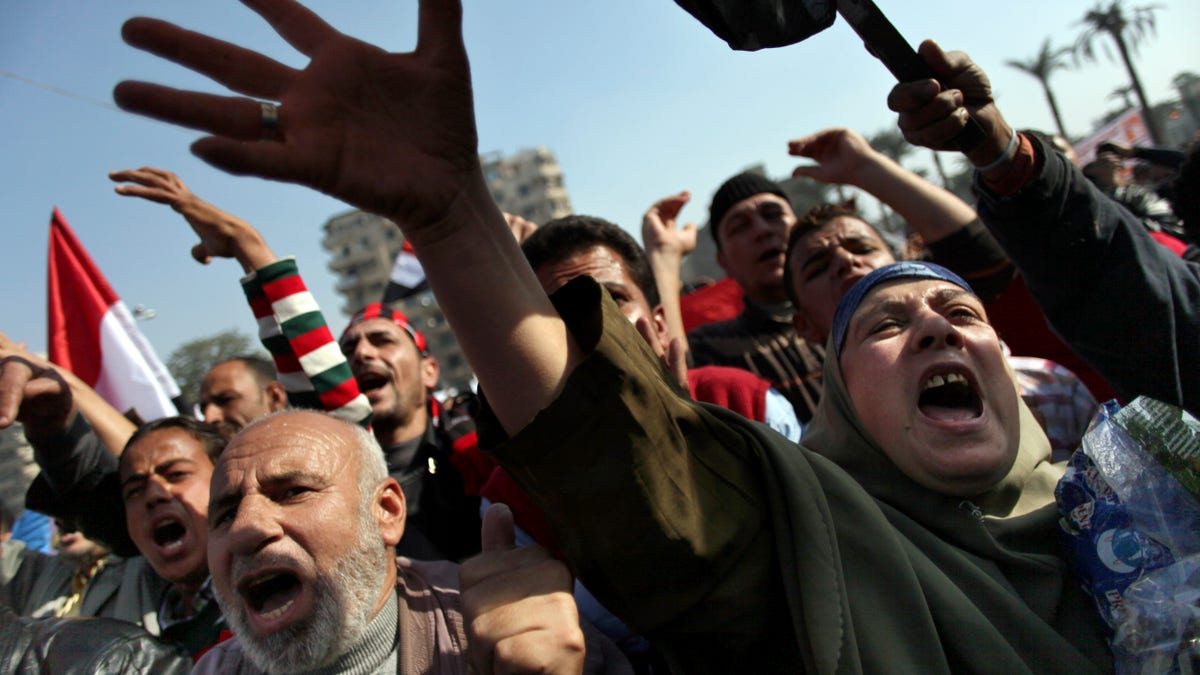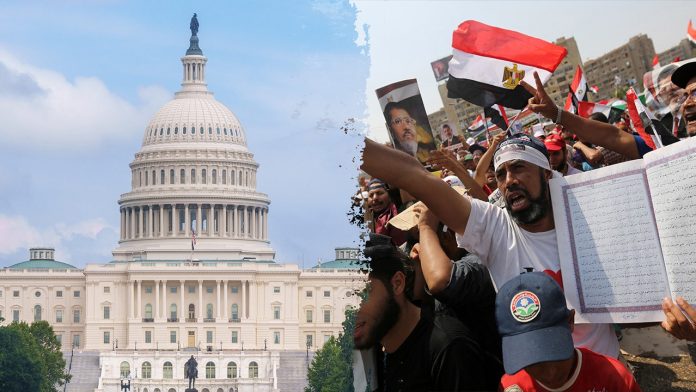NEWYou can now listen to Fox News articles!
President Donald Trump’s new executive order directing the State and Treasury departments to pursue terrorism designations for specific Muslim Brotherhood chapters marks one of the most significant shifts in U.S. policy toward the movement in decades.
Signed on Nov. 24, it launches the first formal review of Brotherhood branches in Egypt, Jordan and Lebanon under U.S. designation laws and redefines how Washington treats Islamist movements with political and militant wings.
Sen. Ted Cruz, R-Texas, praised the move, calling it essential for national security. “The Muslim Brotherhood and its branches encourage, facilitate and provide resources for conducting jihadist terrorism across the world,” he said, urging Congress to advance his Muslim Brotherhood Terrorist Designation Act of 2025.
SCATHING REPORT CALLS ON US TO LABEL ISLAMIST GROUP INFILTRATING ALL ASPECTS OF AMERICAN LIFE AS TERRORIST ORG
Washington has long debated whether the Brotherhood is a unified global movement or a loose network of national branches with different agendas and levels of militancy. That dispute stalled previous attempts to designate the group. Trump’s order bypasses that debate and directs federal agencies to examine individual chapters that analysts say already meet the legal thresholds.
Mariam Wahba, a research analyst at the Foundation for Defense of Democracies, said in a statement that the directive “replaces years of debate with concrete action” and forces U.S. agencies to assess Brotherhood entities that function as “real organizations with leadership structures, financing channels and documented ties to terrorist groups.” She said the order “treats Islamist actors according to their behavior, not their branding.”
Across the Arab world, the Brotherhood has been banned for years. Egypt outlawed it in 2013 after accusing the movement of radicalization and efforts to undermine state institutions. Saudi Arabia and the United Arab Emirates designated it soon after, calling it a direct threat to national stability. Bahrain issued similar findings. Jordan dissolved its local chapter this year following arrests tied to illicit weapons activity. Austria has also taken legal action against Brotherhood-linked networks as part of its counter-extremism framework.
Officials in these countries say the Brotherhood uses a blend of religious preaching, political activism, charitable institutions and media platforms to shape public opinion and challenge state authority.
In the West, the Brotherhood operates far more freely. In the United States, Brotherhood-linked organizations function through charities, advocacy centers, mosques, student associations and community groups. This openness has raised concerns among counterterrorism officials, especially after a U.S. federal investigation in the early 2000s uncovered an internal Brotherhood memorandum describing its work in America as a long-term effort to influence and weaken Western institutions from within.
A French government-commissioned report earlier this year warned of the Brotherhood’s influence in the country, but Paris has yet to officially implement a ban.
TRUMP SIGNALS PLAN TO DESIGNATE MUSLIM BROTHERHOOD A TERRORIST ORGANIZATION

The document, according to Mind Israel think tank research, reflects the Brotherhood’s belief in “long-term social influence” through education, welfare networks and media.
The movement was founded in 1928 by Hassan al-Banna in Egypt after the collapse of the Ottoman Empire. The Brotherhood promoted Islam—according to experts—as the solution to modern political crises and relied on outreach, services and media to expand its base. Influential thinkers like Sayyid Qutb later inspired jihadist movements such as al Qaeda and the Islamic State group.
Although the Brotherhood historically maintained a symbolic “general guide” in Egypt, the movement now operates as a decentralized network across the Middle East, Africa, Europe and North America. Wahba noted that this fragmentation explains why earlier U.S. attempts to impose a blanket designation failed. Instead, Trump’s order adopts the model used when the United States designated Hamas, the Brotherhood’s Gaza branch, in 1997: target the components “that engage in violence, not the ideology itself.”
The decision also comes amid growing Israeli concern about a resurgent Islamist bloc backed by Turkey and Qatar. Israeli Prime Minister Benjamin Netanyahu publicly praised Trump’s action, calling the Muslim Brotherhood “an organization that threatens stability throughout the Middle East and beyond,” and said Israel intends to expand its own restrictions.
CLICK HERE TO DOWNLOAD THE FOX NEWS APP

Avner Golov, vice president of Mind Israel, argued that the United States should pair the new review process with steps to confront foreign influence in American academia, condition arms deals on behavioral changes and close loopholes exploited by extremist-linked organizations.
As the State and Treasury departments begin assembling evidentiary files, officials say the goal is not a blanket ban, but a targeted legal process grounded in provable ties to terrorism. Analysts say the results could determine how the United States confronts a movement outlawed across the Middle East yet still active across Western societies.
Read the full article here


